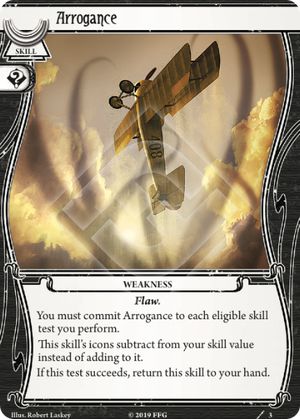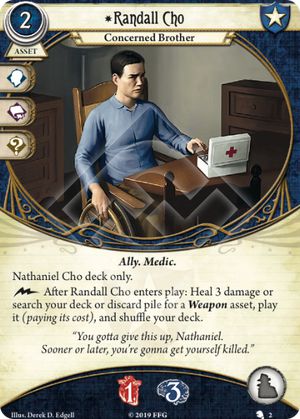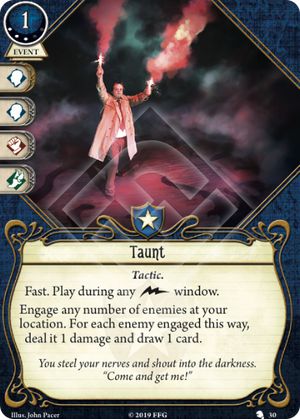
One of the least harmful investigator weaknesses in the game, if not the least harmful. It's comparable to Rex's Curse in that it only causes you to fail one test before you get rid of it. Two big differences though:
- You only get rid of Rex's Curse if you would've succeeded. Arrogance is removed even if you wouldn't have succeeded without Arrogance anyway.
- Arrogance isn't shuffled back into the deck after getting rid of it.
The only real annoyance is with all the "Succeed by X" cards, but that's a minor issue really. One Willpower test in the Mythos phase (which are plentiful) and you're already free from Arrogance. I really feel like they forget a sentence where it is shuffled back into your deck after getting rid of it (similar to Rex's Curse). Also would make it hurt more because Winifred Habbamock inherently draws a lot, making her lose valuable draws in the process.
UPDATE 17/09/2020: Fun interaction: while you must commit Arrogance to each skill test YOU perform, nothing prevents you from commiting it to other Investigators' skill tests. Have Stella in your team and this card literally becomes a joke.



